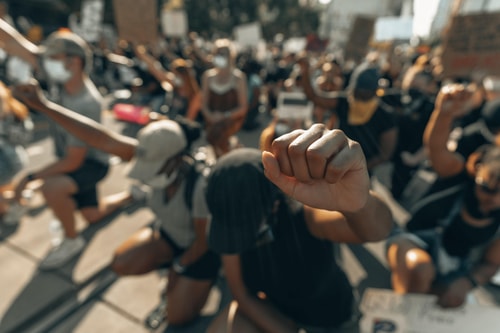As the symbolic death of George Floyd continues to raise questions about racial justice, how can our churches be prophetic and act in this season? This vital issue matters to younger generations, so we must explore where our focus should lie as we speak into it.
Firstly, in order for our churches or church organisations to become places where God’s multi-ethnic kingdom is expressed, we have to be intentional in our thinking, strategies and actions. People often want a multicultural or multi-ethnic church, but are not prepared to do the hard work that it requires.
Have your leaders, board of directors or trustees intentionally sought to have people of Asian, African or Latin American backgrounds on the team? Does your five-year strategy plan intentionally include engaging Christians and churches from majority world countries? Does your national leadership team only have PLUs (People Like Us)? The early church was intentional in nominating and appointing Grecian Jews when they felt marginalised by the Hebraic Jews (a study of the names of the seven leaders the church selected in Acts 6:1 – 7 demonstrates this intentionality).
Secondly, we need to create safe spaces in our churches or church networks to have conversations about race and racism. Too many times, churches shy away from having these conversations because it makes people feel guilty and uncomfortable. If we are going to move forward, we need to have these difficult conversations, and the murder of George Floyd has certainly opened them up. Can our church meetings be dedicated to talk about the issue of race and racism in the church? Can our national church conferences begin to address some of these issues as the main theme, rather than relegating it to a seminar or track focusing on the subject?
Thirdly, our churches or church networks need to listen to majority world voices (Africa, Asia, the Caribbean and Latin America). This is partly to understand the pain and hurt that majority world Christians have been carrying, or have internalised. In a church that already has a mixed congregation, it becomes imperative to listen to those marginal voices who are not normally heard or promoted.
Pastors and church leaders need to remember that this is also a pastoral issue, because as those people begin to share issues they have internalised, pain will surface. Therefore, before creating those safe spaces to listen, ask yourself whether your church has support put in place for those people. This process could also bring healing to the whole church if it is handled very well and very sensitively.
Lastly, our churches and church networks need to learn the history of racism. Part of that will mean putting into perspective the history of the modern missionary movement in the light of its collusion with colonialism. A reorientation of history is also needed, so that we not only see William Wilberforce as the champion of freedom, but the likes of ex-slaves such as Olaudah Equiano and Ottobah Cugoano. Part of our learning will also include knowing how European history has created people we now call African Americans, African Caribbeans, Africans and Black British. Our journey towards a multi-ethnic congregation or organisation requires understanding white hegemony (supremacy) and one way of doing that is to learn about black and Asian history.
It is important to stress that while God’s vision is that of a multi-ethnic kingdom that brings people of different nationalities, ethnicities, classes and ages together to worship Jesus, the journey towards this requires intentional hard work that recognises the need for racial justice. It is my prayer that we will be willing to cooperate with God’s vision of a multi-ethnic kingdom on earth.
This blog is part of 7 Conversations, a suite of interactive, integrated resources for leaders in local settings seeking to understand young adults and bring them into a rock-solid relationship with Jesus.




